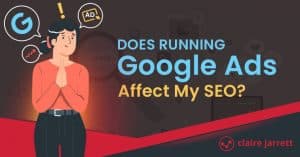A History Lesson In Search & SEO
Last Updated on: 5th August 2022, 08:50 am
With the recent announcement of the latest Google algorithm update; Humming bird, it’s left me thinking about how much the world of SEO has evolved since it first all began.
Whilst we have only been using search engines for the last two decades it’s very strange to think about the world with out them. So many of us rely on them every single day for answers, whether that’s a medical query, to find a service, shop online or even seek some advice, we all turn to search engines in our moment of need and it is because of SEO that we are provided answers. So where did SEO all begin?
Early Days 1994- The first crawler is created
For anyone with a basic knowledge of SEO it might surprise you that initially search engines were edited by humans…not spiders. The first example of Google results didn’t feature images, or videos, nor did it supply PPC results and Google plus was yet to be invented.
In 1994 the first crawler was invented to index entire pages by Brain Pinkerton. This first crawler was imaginatively named ‘Web Crawler’ and was designed to show the top 25 websites.
1988- Google launches
Between 1994 and 1998 when Google launched there were lots of other examples of search engines including- Lycos, excite and Yahoo. Google was the first search engine to introduce page rank (where the engine uses incoming links to determine how a site should rank) and really this was the beginning of a long lasting relationship between SEO and link juice.
2000- Ad words is launched!
Fairly quickly after the launch of the worlds most used search engine, Google clocked on to the idea that paid search could earn them a dollar or two. Around the same time Google also released a page rank bar so that those doing SEO could figure out the best sites to gain links from.
2002- Spam, spam and more spam.
Google bombing occurs in 2002 where SEO’s used linking to make sites rank to completely irrelevant keywords meaning a mess when it came to results. Link buying and key word stuffing is being used to rank pages and over all it’s just one big cheating system. Whilst this worked for a while and was a genuine way to rank, Google didn’t like it much and soon started to crack down on it.
2005- Enter analytics
In 2005 Google introduces Google analytics to enable SEO’s and site owners to track and analyse campaigns and create better strategies. In 2005 word begins to spread that Google might launch an age filter, making it difficult for new sites to rank above those that have been around for longer.
Also in 2005 the first ‘SEO is dead’ blog was published. Since then this has been a popular topic with bloggers in mass claiming ‘SEO is dead’ after every update Google issues. Almost ten years later, SEO is still going strong, it’s just evolved and grown.
2006- No cloaking please
In 2006 Google really cracks down on misleading tactics. Sites like BMW are punished for showing search engines different information to the user, a tactic known as cloaking.
Later in 2008 Google search suggestion launches meaning as the user starts to type previous popular searches appear as ‘suggestions’. This has caused many suggestion related jokes to be published online.
2009- Google steps it up
In 2009 Google introduce a caffeine update that means it can index the web more often in order to provide more up to date results. Google starts to push highly relevant fresh results for every search.
2010- Lets get social
Experts start to procrastinate about the possibility of social signals effecting SEO. With social platforms like Twitter and Facebook providing a lot of links SEO’s begin to wonder if social sharing will have an effect on SEO and both Google and Bing confirm this in an interview with Danny Sullivan.
2011- Welcome Panda
2011 sees the launch of the first animal themed update from Google; Panda. The panda update means that SEO’s now need to start focusing on the quality of the content they are publishing, eliminating any duplicate content and most content bought cheaply would now be useless. High quality content is where it’s at from here on.
The launch of Google+ also means that SEO’s are now seeing some problems with their organic key word data as the dreaded ‘not provided’ appears on analytics.
2012- Move over Panda, Penguin is here
Penguin is the next installment of animal updates from Google. Penguin is created to punish sites that areas still building low quality links i.e. Links bought in mass. No longer is low quality allowed. Google now asks for top notch content and quality highly relevant links. No longer can article spinning be used, directories are also frowned upon and any sudden mass of links being built will certainly be sniffed out.
2013- Back to present day
2013 has so fair been fairly eventful for SEO. One of the biggest events was the re brand of the infamous SEO Moz who now go by the simple name ‘Moz’. The choice to drop the ‘SEO’ came as no surprise. To many SEO refers to the darker days of cheating the system and Moz wanted to shake this reputation. Lots of companies do still use the term ‘SEO’, SEO isn’t necessarily a bad thing and Google has made it so that only those practising accepted methods which require hard work succeed.
Finally as this article began because of the launch of Hummingbird it seems natural to end it looking at the latest update. Hummingbird means some small changes for SEO as the update puts more importance on social media and authorship. Google has also promised increased accuracy in search and better mobile search.
It’s safe to say that from the creation of the first crawler in 1994 to the various algorithm updates of the 2000’s search and SEO have both come a long way. A world with out search would certainly be very different and Google continues to make sure that it’s ever more helpful, pushing to improve year on year.
Interested in Google AdWords? Learn how to set up a profitable campaign and achieve rapid Google Ads success in 7 easy steps with my best-selling Google Ads book!




